Time & Date
February 2, 2021, 11:30am - 1:30pm EST
February 9, 2021, 11:30am - 1:30pm EST
Goals
Anatomical Structures, Cell Types, plus Biomarkers (ASCT+B) tables aim to capture the nested part_of structure of anatomical human body parts, the typology of cells, and biomarkers used to identify cell types (e.g., gene, protein, lipid or metabolic markers). The tables are authored and reviewed by an international team of anatomists, pathologists, physicians, and other experts. During this workshop 11 tables will be finalized and readied for publication.
Location
Virtual, zoom links will be provided.
Photos
Click on images for larger view.


Organizers
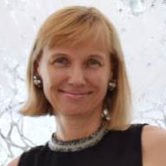
Katy Börner
Director, CNS, Intelligent Systems Engineering, Indiana University
James Gee
Director, Penn Image Computing and Science Laboratory, University of Pennsylvania
Ellen Quardokus
Senior Research Analyst, CNS, Indiana University
Local Organizers
Members of the Cyberinfrastructure for Network Science Center (CNS) at the Luddy School of Informatics, Computing, and Engineering, Indiana University.
Lisel Record
CNS Associate Director, Intelligent Systems Engineering, Indiana University
Matthew Martindale
CNS Center Assistant, Intelligent Systems Engineering, Indiana University

Medina Sydykanova
CNS Project Support Specialist, Intelligent Systems Engineering, Indiana University

Andreas Bueckle
CNS Research Assistant, Intelligent Systems Engineering, Indiana University
Agenda
All times are in Eastern Daylight Time (UTC-4)
February 2, 2021
- 11:30amWelcome by organizers and Introduction of MC Andreas Bueckle
- 11:35amStatus Report on 11 Tables, 3D Reference Organs, Additional Info
- 11:45amNew SOPs for tables and reference organ construction
- 12:00pmOpen discussion of how tables/reference organs were constructed. Is there a way to further unify their structure/content (e.g., using vasculature terms to interlink the different organs?)
- 12:30pmDiscussion of limitations of current tables/reference organs, what critical information was left out to fit the v2.0 table format and what fields should be added in future versions?
- 12:45pmChallenges and opportunities for harmonizing ASCT+B Tables with existing ontologies
- 1:00pmGroup Photo
- 1:05pmOpen Discussion of TODOs for NCB paper
- 1:30pmAdjourn
February 9, 2021
- 11:30amWelcome by Organizers and MC Andreas Bueckle
- 11:35amStatus Report on 11 Tables, 3D Reference Organs, Additional Info
- 11:45amASCT+B Use Cases (7mins each)
- Use case #1: Supporting spatial and semantic search, filtering, browsing in HuBMAP
- Use case #2: ASCT+B Table use in KPMP
- Use case #3: Computing progress toward a Human Reference Atlas
- Discussion of other potential use cases
- 12:15pmOpen Discussion of TODOs for NCB paper
- 12:30pmOutlook (10min each)
- How to update ontologies to reflect data in ASCT+B tables
- Feature requests for table data format and ASCT+B Reporter v2.0 and new OWL file format
- 1:30pmAdjourn
Participants
Amy Bernard 
Director, Science & Technology Strategy, Allen Institute

Rebecca Beuschel 
Student, Center for Advanced Tissue Imaging, NIH
Maigan Brusko 
Research Director, Human Atlas of Neonatal Development and Early Life, University of Florida

Selen Catania 
Program Officer, Division of Cardiovascular Sciences, NHLBI, NIH

Alexander D. Diehl
Associate Professor, Department of Biomedical Informatics, University at Buffalo

Zorina Galis 
Chief, Vascular Biology and Hypertension, National Heart, Lung and Blood Institute, NIH
Fiona Ginty 
Biosciences Technology Manager & Principal Investigator, GE Global Research

Rafael Goncalves 
Research Scientist, Center for Biomedical Informatics Research, Stanford University
Muzz Haniffa


Wellcome Trust Senior Research Fellow in Clinical Science, Newcastle University, UK

Bruce W. Herr II

Senior System Architect/Project Manager, Intelligent Systems Engineering, Indiana University

Young-Kwon Hong

Associate Professor & Director of Translational and Basic Science Research, University of Southern California

Paul Hrishikesh

Research Assistant, Computer Science, Indiana University
Sanjay Jain 
Director, Kidney Translational Research Center, Washington University in St. Louis

Sirpa Jalkanen 
Professor of Immunology, University of Turku, Finland
Marda Jorgensen 

Senior Scientist, Department of Pediatrics, University of Florida

Shin Lin 
Assistant Professor, Division of Cardiology, University of Washington

Teri Longacre 
Professor in Surgical Pathology, Stanford University

Anna Maria Masci 
Research Scientist, Biomedical Ontology & Immunology, NIH

Chris Mungall 
Research Scientist, Environmental Genomics & Systems Biology Division, Lawrence Berkeley National Laboratory
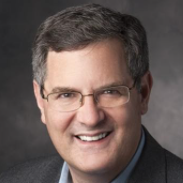
Mark Musen 
Director, Stanford Center for Biomedical Informatics Research, Stanford University
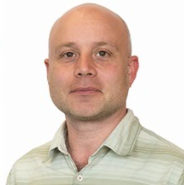
David Osumi-Sutherland 
Ontologist & Semantic Design, Human Cell Atlas, EMBL, UK

Ajay Pillai 
Program Director, National Human Genome Research Institute, NIH
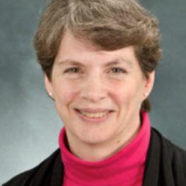
Gloria Pryhuber 
Professor, Department of Pediatrics, University of Rochester Medical Center
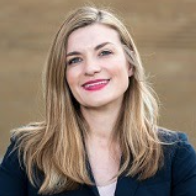
Andrea J. Radtke 
Staff Scientist, Center for Advanced Tissue Imaging, NIH
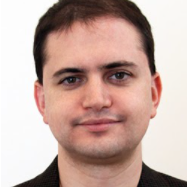
Griffin Weber 
Associate Professor of Biomedical Informatics, Harvard Medical School
Acknowledgements
The first ASCT+B table was published for the kidney by the Kidney Precision Medicine Project (KPMP) in "A Multimodal and Integrated Approach to
Interrogate Human Kidney Biopsies with Rigor and Reproducibility: The Kidney Precision Medicine Project".
Katy Börner (HuBMAP, KPMP), Peter Hunter (SPARC), and James Gee (BICCN) organized a CCF session at the
2020 Joint NIH-HCA Meeting. This session brought together experts from multiple consortia to develop ASCT+B
tables in an effort to create a unified view of healthy human anatomy, cell types, and biomarkers. Mark
Musen, Chris Mungall, and David Osumi-Sutherland provided expert guidance on linking ASCT+B tables to
existing ontologies.
The work was funded by NIH Awards OT2OD026671, U54DK120058, 1UH3CA246594, 1U54AI142766, 1UG3CA256960, 1UG3HL145609 and U54HL145608.
Prior CCF Workshops
Contact Us
Matthew MartindaleCyberinfrastructure for Network Science (CNS) Center Assistant
Luddy School of Informatics, Computing, and Engineering,
Indiana University
812-855-9930 masmarti@iu.edu

Social Media
HuBMAP twitter feed: @_hubmap
Share on TwitterHashtag: #HuBMAP